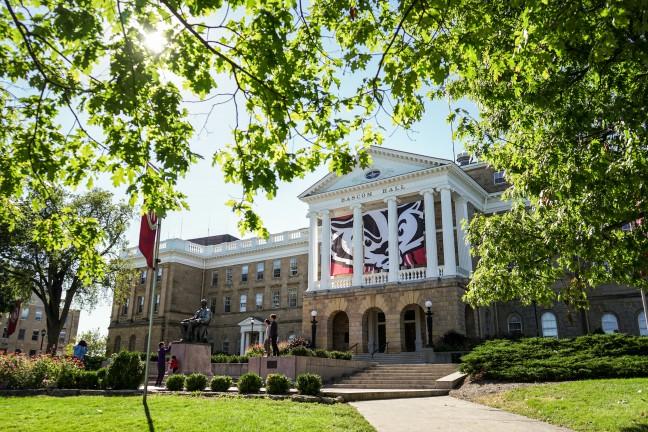Looking to address Wisconsin student loan debt, the Committee on Universities and Technical Colleges held a public hearing Wednesday.
Jeff Buhrandt, University of Wisconsin System spokesperson, said half of all UW students, a little less than 112,000 individuals, borrowed from a student loan program in 2013-2014. He said 74 percent of resident undergrad students graduated with an average of $30,452 of debt.
“If the interest rate is not lower, significantly lower, it will not benefit students,” Buhrandt said.
Buhrandt said the UW System would welcome more options for its students because currently 89 percent of student loans are federal and state loans compose only a small percentage of the remaining 11 percent.
Rep. Cory Mason, D-Racine, and Sen. Dave Hansen, D-Green Bay, co-sponsored a bill that would give Wisconsinites the ability to refinance their student loans in order to have lower interest rates. The bill also aims to increase financial literacy by giving parents and students more information before they sign onto student loans.
Mason said more than one million Wisconsinites have student loan debt and 60 percent of those people are over age 30. He said for a recent graduate who just entered the workforce and is making $30,000 with a college degree, payments of $300 to $500 a month is a “substantial” cut out of the citizen’s income.
“It is literally hindering people’s ability to thrive in the middle class and it’s hurting … our economy overall to send so much of that money out of state, by and large, to big Wall Street banks, instead of putting it back into Main Street,” Mason said.
Mason said he knows from research and constituent anecdotes that student loan debt limits the ability of individuals to buy their first homes and in some cases forces new graduates to move back in with their parents. He said by lowering interest rates, people will have more spending money to contribute to the state economy.
John Reinemann, State of Wisconsin Higher Education Aids Board executive secretary called the student loan debt problem “huge” and approved of the bill authors’ goal but cautioned legislators when proceeding forward. He said if a federal loan debt student consolidates once, generally he does not have the ability to do it again. In addition if he chooses to refinance outside the federal system, he loses some of the protections provided by a federal student loan, Reinemann said.
Reinemann also said the bill would change what is considered an educational expense by adding loans to the definition. He said while reducing debt is desirable, people in his line of business have expressed concern to him that the bill may result in “unintended consequences.”
“I have heard anecdotally … that there is some concern that if this mechanism did exist, it might perversely foster a certain disinterest in the actual consequences of borrowing this much money … you might create a sense of well-being that perhaps wouldn’t be appropriate for the situation, you might lull people into a false sense of security,” Reinemann said.
Conrad Wight, UW-Madison sophomore, said he was fortunate enough to have no student loan debt because of financial support from his parents but that this major flaw in the UW System could benefit from government intervention.
“The reason that no one sitting here is 100 percent happy with this bill is because it is not entirely in line with any single group’s policy objectives, and frankly I think that means it’s a good compromise” Wight said.


